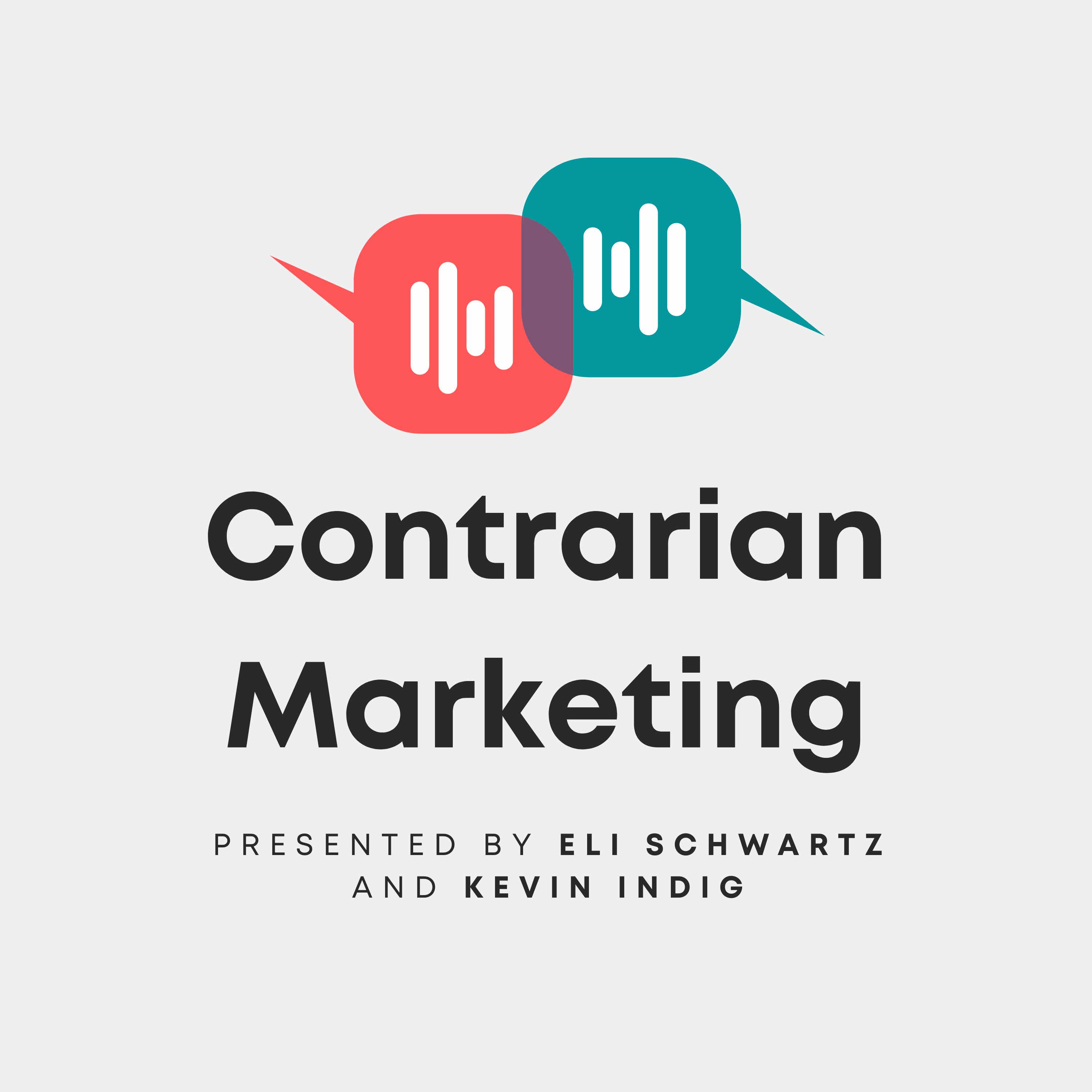Working from home - great or terrible?
Description
This episode is available on:
* Spotify
* YouTube
* Apple Podcasts
Today we discuss if ‘work from home’ as a concept is truly beneficial for the dynamics of employees and managers in an organization.
Thanks to the pandemic, many organizations switched to work-from-home, but some of them, Goldman Sachs, Google, Microsoft, etc., pull employees back to the office. They have realized that in-person interaction may outweigh the many stated advantages of a WFM culture.
✅Kevin says working from home enables an employee to take control of their time for a better work-life balance.
⛔Eli says working from home limits an employee’s growth within an organization and beyond.
In this episode of Contrarian Marketing, we discuss:
* Impact of work from home on today’s workers
* How work from home impacts the various players of an economy
* Tips on how to work from home
Shoutout to our sponsor, Ahrefs!
If you’re looking for ways to drive more SEO traffic, you need to take a look at Ahrefs.
Ahrefs allows you to find and fix technical errors, keyword gaps with your competitors and internal link opportunities.
Many of the best SEOs in the game use Ahrefs, and so do Eli and I. It’s a key tool in our work; we’ve been using it for many years with some of the best tech companies in the world.
Check out ahrefs.com and sign up for free!
Key Takeaways
* Working from home is great for individuals who are disciplined and can work independently. Consecutively, one should work on these skills to truly ace working from home.
* Companies should choose between in-office or WFH culture but not mix since that could lead to remote employees being left behind in their careers.
* Young workers and recent graduates should explore in-office culture for better opportunities and professional development.
* Organizations should understand the mechanics of working from home to build or transition into a successful remote-first company.
* Organizations should explore repurposing the cost savings from adopting remote work for employee benefits.
Kevin’s take: Work from home enables employees for a better work-life balance
Kevin states how working from home has significantly cut down his commute time:
“My commute is now five seconds as opposed to over an hour. When I lived back in San Francisco in the Bay Area, I had to take the train from Palo Alto to the city which took me over an hour one way. The time on that train was not very productive. You can maybe answer a couple of emails or do some things, but you're constantly interrupted and oftentimes you cannot sit down - so it comes with all this stress.
Now, I wake up, make coffee, make breakfast, and go into the office. I work a bunch of hours and then I go to the gym, and then I'm done for the day. I'm saving over two hours that I used to have to spend on commuting.”
Eli shares a different take by giving an example of how he used his commute time productively:
“I use my commute time effectively to listen to audiobooks, and read physical books, and podcasts. That's the stuff I don't do right now (during work from home) - I hardly ever read. I hardly ever listen to other podcasts cause I don't have that time.
There's no buffer time. To be fair, I love working from home - I love that flexibility, but I don't know that it's necessarily good for everyone. The idea of working from home is permanent and being granted to people actually takes away something that many people benefit from.”
Kevin states that a ‘Hybrid’ arrangement, where companies have employees working full-time remotely or in-office, is the worst form of WFM culture:
“If some people work remotely and others in the office, then the people working remotely don't have the same access to other people to build the same relationships. They're not as present, not as visible, and that is a losing position.
I remember when I worked at Atlassian, some people were allowed to work from home completely remotely on a full-time basis. But
More Episodes
This episode is available on Spotify and Apple Podcasts
In this episode of the Contrarian Marketing podcast, hosts Kevin and Eli debate whether Google's new search experience powered by generative AI (SGE) will actually launch publicly soon or remain stuck in beta.
They discuss the motivation...
Published 04/05/24
Published 04/05/24
In this episode of the Contrarian Marketing Podcast, hosts Eli and Kevin discuss how to bring the beloved Trader Joe's shopping experience online.
This is a public episode. If you would like to discuss this with other subscribers or get access to bonus episodes, visit...
Published 02/22/24


